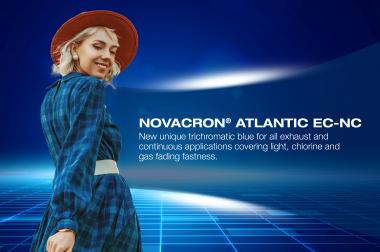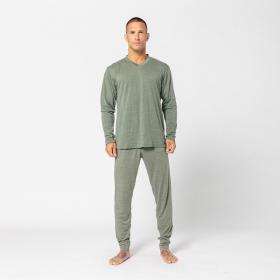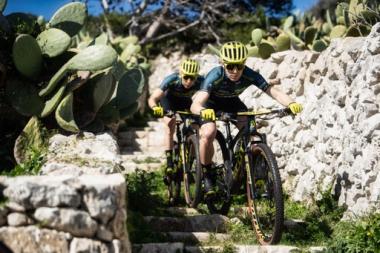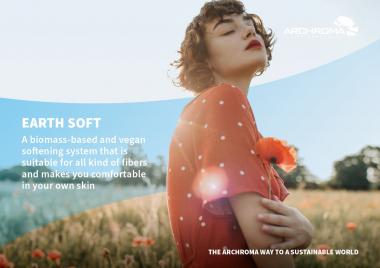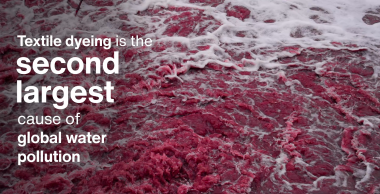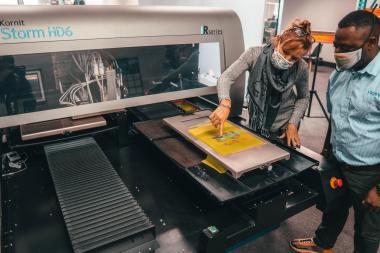Huntsman introduces Blue Formazan Dye ensuring longer lasting textiles
Huntsman Textile Effects has introduced NOVACRON® Atlantic EC-NC, one of the the industry’s first blue elements that delivers chlorine- and nitrogen oxide (NOx)-fastness alongside lightfastness for textiles, ensuring garments to look as good as new for longer.
The NOVACRON® Atlantic EC-NC blue element completes Huntsman Textile Effects’ Non-Contrasting Concept and addresses the challenges faced by mills to deliver:
- Improved light-, perspiration- and chlorine-fastness
Ideal for the production of light-medium shades of towels and bedding and T-shirts, shirts and trousers, the dye meets the most stringent home laundering program requirements of US and Japanese brands, and also performs well in other markets where chlorine is added to water supplies. - High NOx resistance
NOx present in the air makes textile products more susceptible to fading during transportation, storage and retail display. The high NOx resistance of NOVACRON® Atlantic EC-NC enables mills and brands to achieve positive differentiation with textiles that are less likely to fade. - Operational excellence
With unique application properties for both exhaust and pad processes, and outstanding compatibility with all other trichromatic dyes, NOVACRON® Atlantic EC-NC is a breakthrough in right first-time production.
The innovative IP-protected NOVACRON® Atlantic EC-NC dye is also a great addition to the successful NOVACRON® NC concept for earth tone colors. The earth tones – from sand to brown, olive, beige, khaki and grey – are popular in casual wear and sports apparel, as well as for home and hospitality textile products such as furnishing, towels and bedding.
Huntsman Corporation


